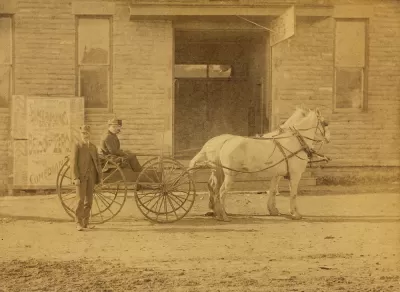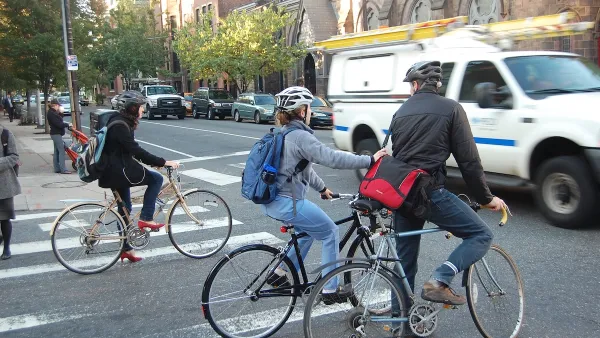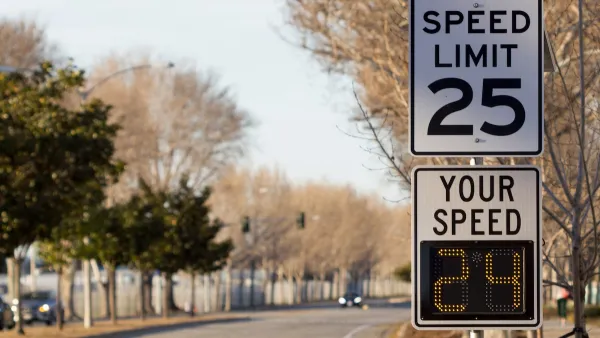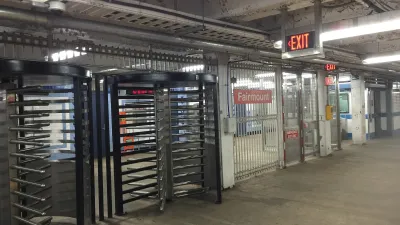A growing number of cities around the world, and around the United States, have banned horse-drawn carriages out of concern for the health and welfare of the horses.

Jake Blumgart reports on an idea that could change the way tourists and romantics get around cities in the United States.
Janet White, an animal rights activist and leader of the group Carriage Horse Freedom, "has an idea she thinks could help the tourism industry shift away from horse-powered buggy rides, a popular draw in the visitor-packed streets of Philadelphia’s oldest neighborhoods."
"White envisions elaborate carriages, looking as though they just appeared from the set of Beauty and the Beast, but powered purely by electricity," explains Blumgart.
By using batteries to power carriages, instead of horses, White hopes to get the best of both worlds: the appeal of a old-time romantic carriage ride, but without any animal suffering.
White is spreading the idea around the halls of power in Philadelphia, but cities around the world have already banned horse-drawn carriages altogether, including Montreal, Salt Lake City, Rome, Barcelona, and Guadalajara. New York City almost banned horse-drawn carriages during the de Blasio administration, but stopped short.
FULL STORY: Hold your horses: Can old-timey ‘e-carriages’ replace Old City buggies?

Planetizen Federal Action Tracker
A weekly monitor of how Trump’s orders and actions are impacting planners and planning in America.

Congressman Proposes Bill to Rename DC Metro “Trump Train”
The Make Autorail Great Again Act would withhold federal funding to the system until the Washington Metropolitan Area Transit Authority (WMATA), rebrands as the Washington Metropolitan Authority for Greater Access (WMAGA).

DARTSpace Platform Streamlines Dallas TOD Application Process
The Dallas transit agency hopes a shorter permitting timeline will boost transit-oriented development around rail stations.

Renters Now Outnumber Homeowners in Over 200 US Suburbs
High housing costs in city centers and the new-found flexibility offered by remote work are pushing more renters to suburban areas.

The Tiny, Adorable $7,000 Car Turning Japan Onto EVs
The single seat Mibot charges from a regular plug as quickly as an iPad, and is about half the price of an average EV.

Supreme Court Ruling in Pipeline Case Guts Federal Environmental Law
The decision limits the scope of a federal law that mandates extensive environmental impact reviews of energy, infrastructure, and transportation projects.
Urban Design for Planners 1: Software Tools
This six-course series explores essential urban design concepts using open source software and equips planners with the tools they need to participate fully in the urban design process.
Planning for Universal Design
Learn the tools for implementing Universal Design in planning regulations.
Municipality of Princeton
Roanoke Valley-Alleghany Regional Commission
City of Mt Shasta
City of Camden Redevelopment Agency
City of Astoria
Transportation Research & Education Center (TREC) at Portland State University
US High Speed Rail Association
City of Camden Redevelopment Agency
Municipality of Princeton (NJ)





























